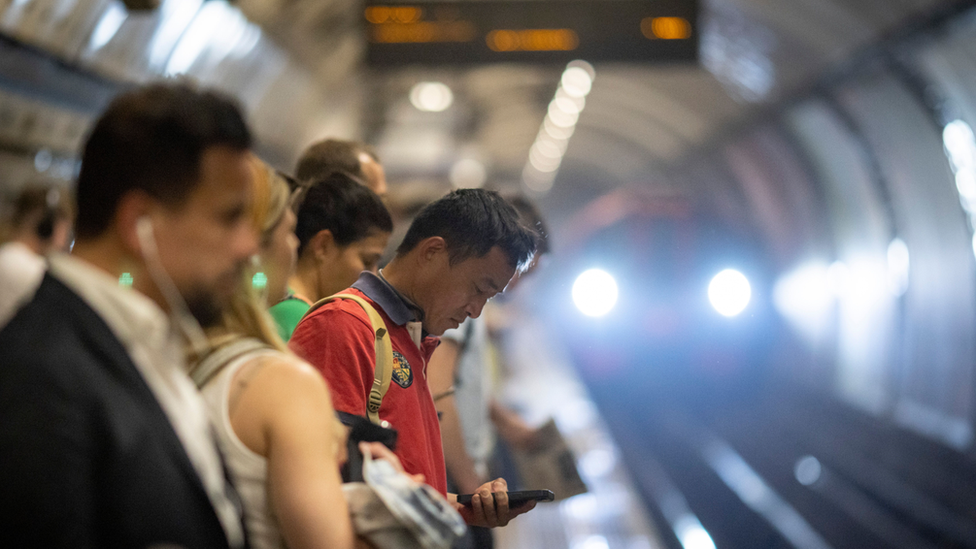TfL to find hundreds of millions in savings, plan suggests
- Published
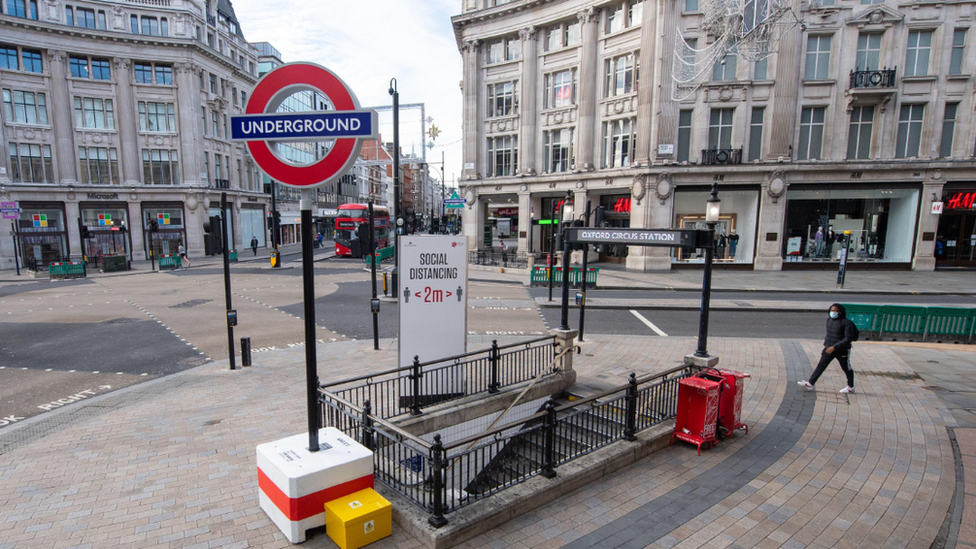
The lockdowns caused passenger revenue to plummet
Transport for London (TfL) will need to find an additional £600m a year in savings by 2025-26, according to its draft Business Plan.
It said it was down to inflation and the requirements of the recent government bailout.
TfL says it will do this by "improving efficiencies" but that services will not be cut.
It also assumes that fares will rise by 4% until 2024, rather than being tied to inflation.
TfL has endured a difficult few years since the emergence of Covid. Revenue from fares plummeted as passengers stayed at home, and some are yet to return. TfL says passenger numbers are at about 80% of pre-pandemic levels.
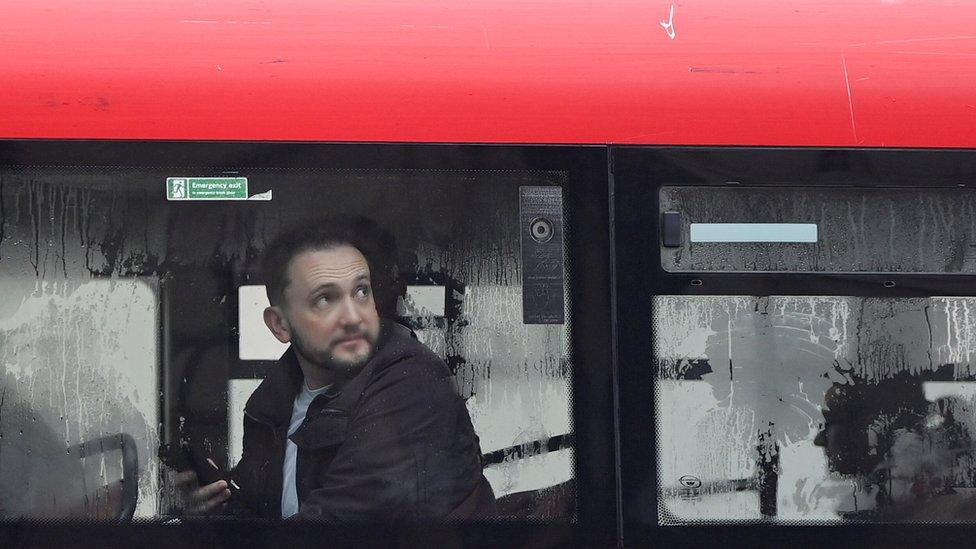
There will be more buses in outer London
A series of short-term government bailouts was followed by a funding agreement with the Department for Transport, which lasts until the end of March 2024.
In its draft Business Plan, external, TfL forecasts it will by that point break even on its "operating account" - the money used to make the the Tube, buses and trains run day to day, as well as to pay staff.
To break even, TfL needs to encourage more passengers to use its services. However, it says the cost-of-living crisis means poorer households, renters and people with large mortgages are "more likely to make cutbacks" and may not travel as frequently. TfL's targets assume that it will take more than four years before travel returns to pre-pandemic levels.
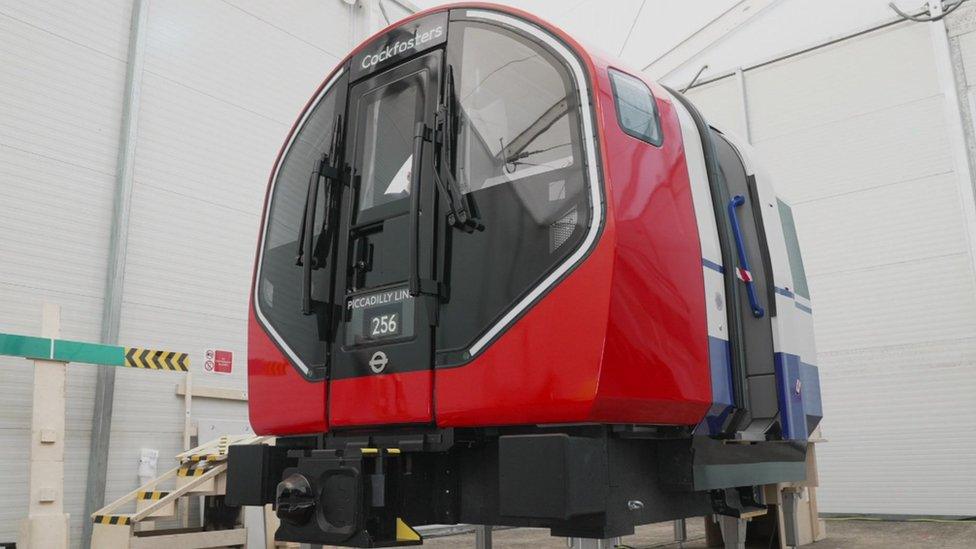
Londoners can still look forward to new Piccadilly line trains
Fares may not rise as much as anticipated. Normally they rise by inflation plus 1%. However, TfL says that until 2024 "our passenger income is set to the Department for Transport's revenue scenario" which assumes fares will increase by 4% in March 2023 and March 2024.
But this is not set in stone: the final decision on fares rests with the mayor.
TfL commissioner Andy Lord said he could "once again look to the future with optimism".
"This plan shows how we will work to achieve our vision of being the green heartbeat of London, and how we will continue on the path to financial sustainability whilst delivering real and vital improvements for the city."
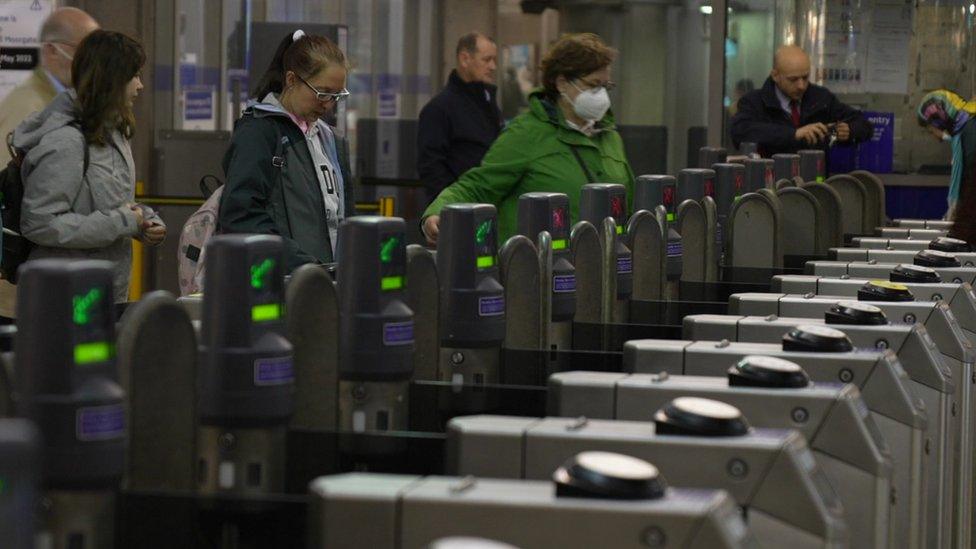
The final decision on fare increases rests with the mayor
Separately, over £8bn will be invested in London's road and rail network. Londoners can look forward to new Piccadilly line and DLR trains, new zero-emission buses, 14km of new cycleways, and more buses in outer London.
This capital expenditure is separate from the budget for the day-to-day running of the network. TfL has other plans to improve infrastructure such as new signalling on the Piccadilly line, but it says it needs new capital funding from the government.

Follow BBC London on Facebook, external, Twitter , externaland Instagram, external. Send your story ideas to hellobbclondon@bbc.co.uk, external
Related topics
- Published25 November 2022
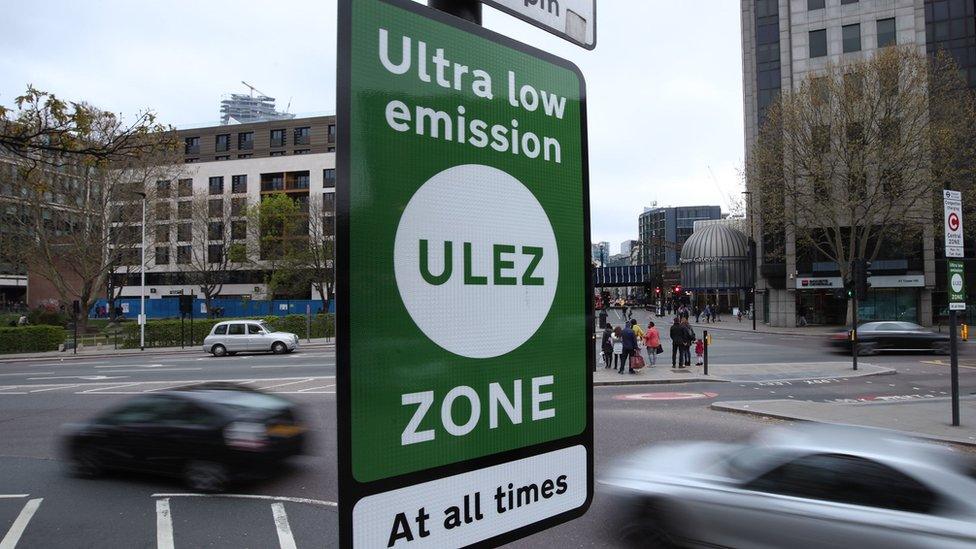
- Published30 August 2022
